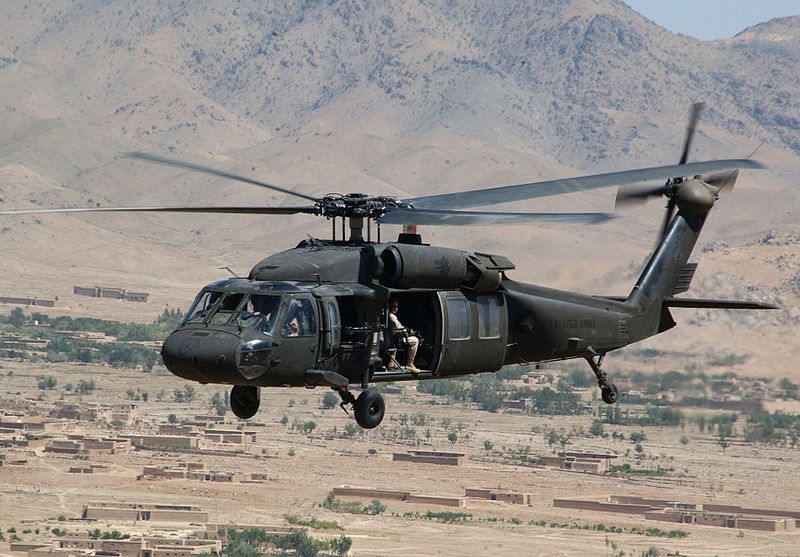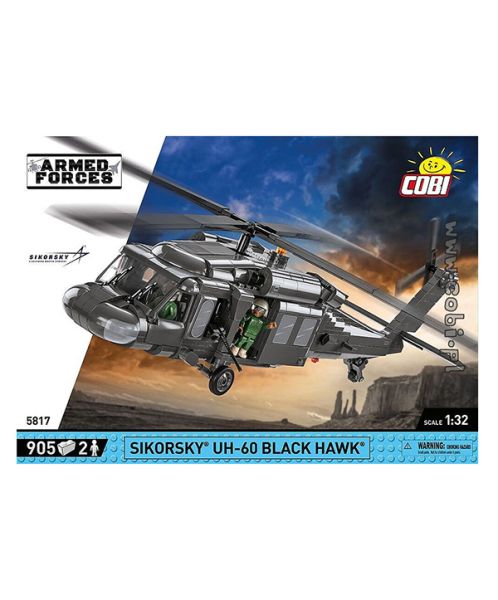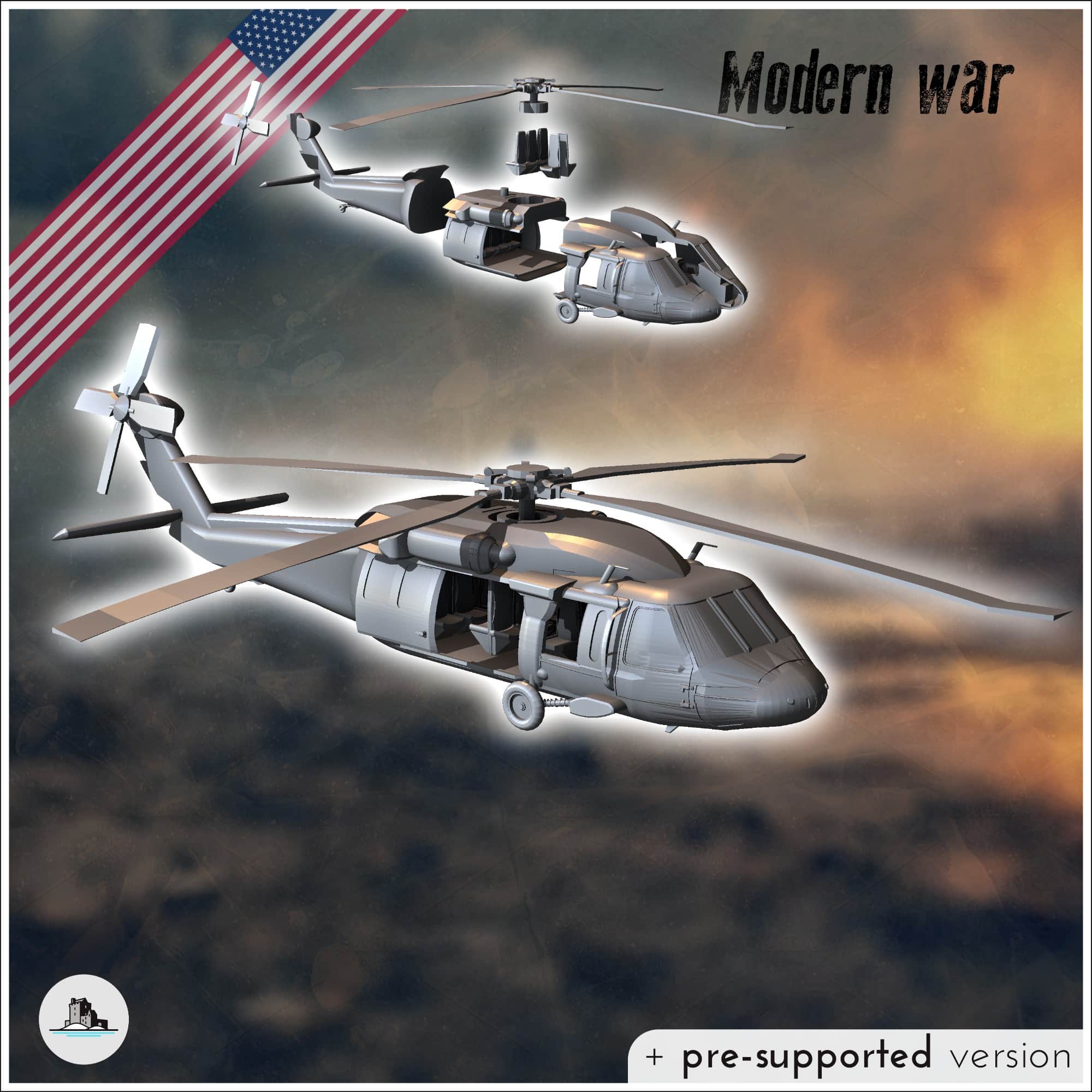Recognizing the UH60: The Ultimate Armed Force Helicopter Experience
The UH-60 Black Hawk helicopter stands for a vital evolution in army air travel, incorporating durable design with multifaceted operational abilities. As we check out the history, requirements, and technical advancements of the UH-60, it ends up being obvious that its function in forming contemporary armed forces approaches is both significant and far-reaching.
History of the UH-60
Emerging from the need for a flexible energy helicopter during the late 1960s, the UH-60 Black Hawk was established by Sikorsky Airplane Corporation in response to the united state Military's requirement for a modern-day battleground transport helicopter. The design process commenced in 1972, finishing in its first flight in October 1974. The Black Hawk was crafted to replace the aging UH-1 Iroquois, also recognized as the "Huey," which had been a staple of Military air travel because the Vietnam War.

For many years, the Black Hawk has actually undergone many upgrades, maintaining its importance in modern army operations. Its success has actually resulted in the growth of various versions, serving multiple branches of the united state army and allied pressures worldwide, developing the UH-60 as a foundation of army air travel background
Trick Functions and Specs
The UH-60 Black Hawk is differentiated by its innovative design and durable specs, which add to its convenience on the field of battle. This multi-role helicopter includes a twin-engine setup, powered by 2 General Electric T700-GE-701C engines, delivering an optimal result of 1,800 shaft horsepower each. This effective engine arrangement permits the Black Hawk to get to an optimum speed of about 183 knots (211 miles per hour) and a solution ceiling of 19,000 feet.
The airplane's composite rotor blades offer extraordinary lift and maneuverability, while its four-blade major rotor system enhances security (UH60). The Black Hawk is geared up with sophisticated avionics, consisting of an electronic cabin and evening vision capacities, making certain reliable operations in varied problems. Its cabin can accommodate approximately 11 troops or lug as much as 8,000 extra pounds of freight, making it appropriate for various logistical needs
The UH-60's modular design permits for very easy upkeep and upgrades, making certain long life and flexibility in evolving military demands. Furthermore, its advanced survivability attributes, such as crashworthy seats and shield, enhance staff safety and security during goals. Overall, the UH-60 Black Hawk stands for a substantial development in armed forces aviation technology.
Functional Duties and Objectives
Convenience is a trademark of the UH-60 Black Hawk, enabling it to do a vast selection of operational duties and missions throughout different military atmospheres. Primarily made for army transport, the Black Hawk can lug up to 11 soldiers and is regularly used in air assault operations, allowing fast insertion and extraction of ground pressures in disputed areas.

In addition to troop transport, the UH-60 is adept at clinical discharge (MEDEVAC) missions. Equipped with sophisticated medical devices and employees, it can quickly leave damaged soldiers from the field of battle, dramatically boosting survival prices in crucial situations. The helicopter additionally plays a crucial role in logistics support, providing supplies, ammo, and equipment to forward running bases in austere settings.
Moreover, the Black Hawk functions as a system for unique operations missions, consisting of reconnaissance and direct activity. Its capacity to run in numerous surfaces and its low-flying capabilities make it an important asset for devices conducting covert operations.

Technical Innovations
Technology in aviation modern technology has considerably enhanced the abilities of the UH-60 Black Hawk, guaranteeing its relevance in modern-day armed forces procedures. The helicopter is geared up with sophisticated avionics systems that provide pilots with superior situational awareness, consisting of multi-functional display screens, boosted GPS, and sophisticated surface awareness systems. These functions make it possible for accurate navigation and objective implementation, also in tough atmospheres.
In addition, the assimilation of electronic communications systems permits protected and immediate details exchange between devices, assisting in collaborated procedures. The UH-60's updated rotor systems and composite products add to enhanced efficiency, offering greater speed, dexterity, and minimized upkeep costs.
Furthermore, advancements in weapon systems, such as the capacity to deploy precision-guided munitions, enhance the Black Hawk's duty in combat scenarios. The her response helicopter's ability to sustain medical discharge goals is likewise boosted by new medical devices and technologies, making sure effective patient treatment in transportation.
Lastly, ongoing enhancements in stealth modern technology and sound decrease mechanisms even more strengthen the UH-60's effectiveness in hidden operations, enabling it to operate in hostile territories with a minimized possibility of detection. Collectively, these technological innovations emphasize the Black Hawk's enduring importance in army aeronautics.
Effect On Modern War
Improved capacities of the UH-60 Black Hawk have exceptionally affected contemporary warfare methods and strategies. Its convenience in troop transportation, medevac operations, check my reference and reconnaissance roles has redefined the functional landscape for army forces. The helicopter's capability to operate in diverse settings, from metropolitan setups to rugged surfaces, permits better tactical adaptability, enabling leaders to adjust swiftly to altering battleground problems.
The UH-60's innovative avionics and communication systems boost situational recognition, helping with real-time intelligence sharing and sychronisation among units. This capacity is critical in modern-day asymmetric war, where rapid decision-making can identify the end result of involvements. The helicopter's ability for quick insertion and removal of unique operations pressures has come to be a trademark of contemporary army campaigns, highlighting rate and accuracy.
Furthermore, the Black Hawk's assimilation with unmanned aerial systems and other sophisticated innovations signifies a change in the direction of multi-domain operations. Therefore, the UH-60 not only functions as a vital property in traditional disputes but also plays a pivotal function in counterinsurgency and peacekeeping objectives, emphasizing its enduring effect on modern-day army doctrine and the development of warfare.
Conclusion
The UH-60 Black Hawk represents a pinnacle of army aviation, defined by its flexibility, progressed engineering, and robust design. Its capabilities in troop transport, medical discharge, and logistical support underscore its crucial function in modern military operations. Constant technological improvements and improvements have further strengthened the Black Hawk's calculated importance, allowing rapid feedback and adaptability in varied battle circumstances. Ultimately, the UH-60 continues to be an essential property, shaping the landscape of contemporary war and functional performance.

Development in aeronautics technology has actually considerably boosted the capacities of the UH-60 Black Hawk, ensuring its relevance in modern-day armed forces procedures.The UH-60 Black Hawk represents a peak of army air travel, defined by its flexibility, progressed design, and durable layout.